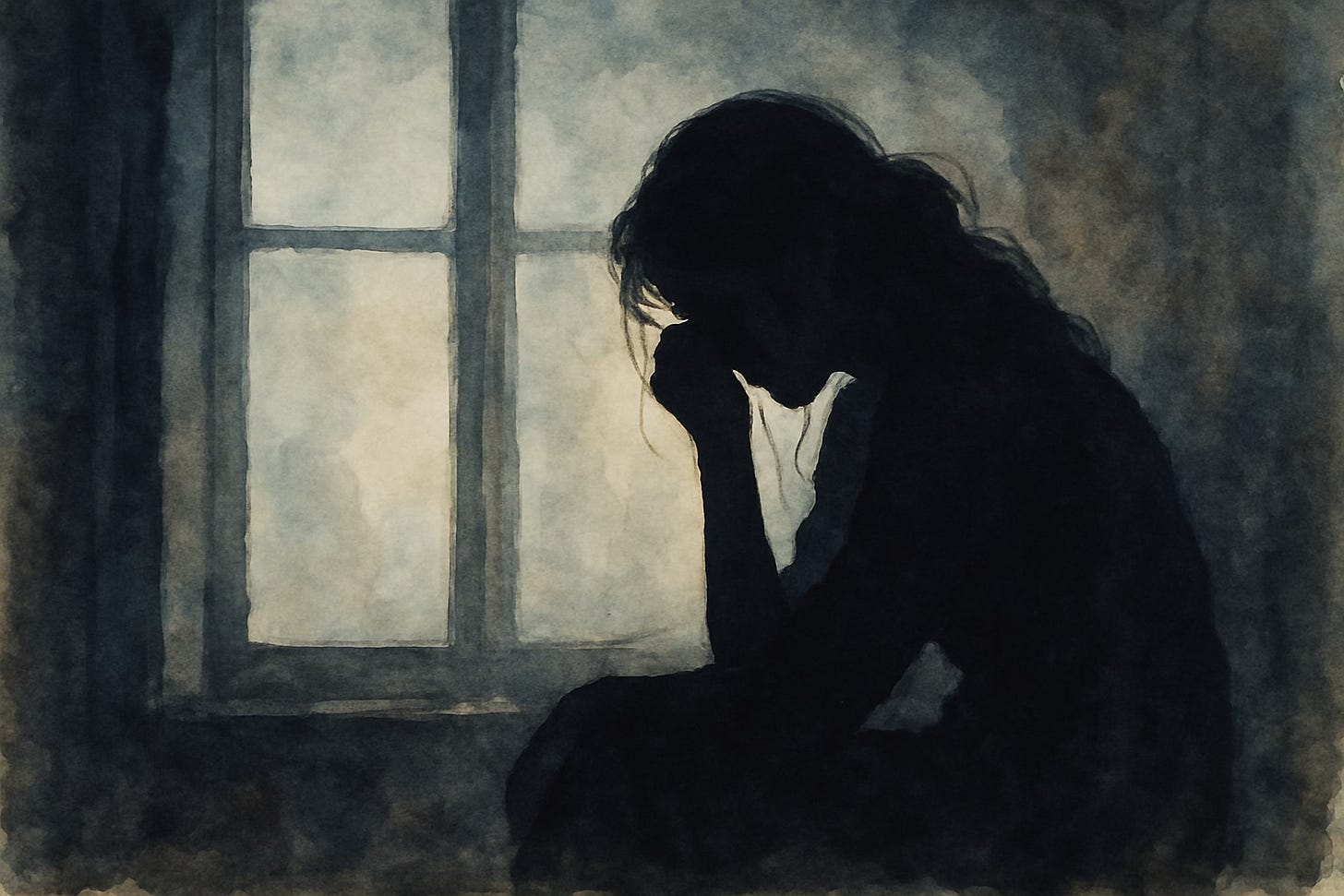When the Prayer Doesn’t Resolve
A Lament in the Silence
There may come a time — perhaps you’re in it now — when prayer feels more like protest than peace.
When faith no longer feels triumphant, but tenuous.
When you keep showing up before God not because you’re full of hope, but because you have nowhere else to go.
You’ve prayed.
You’ve waited.
You’ve believed.
And still, heaven remains quiet. The silence thickens. The waiting stretches. And you begin to wonder if God is still listening. Or if He was ever speaking at all.
You don’t want to walk away. But you also don’t know how to keep walking forward. You’re exhausted, confused, maybe even angry.
And perhaps worst of all, you feel like you’re not allowed to feel this way.
The Hidden Grief of the Faithful
Somewhere along the way, many of us were taught that real faith looks like unwavering trust.
That if we doubt, or despair, or rage in God’s direction, we’re somehow failing Him.
So we edit our prayers.
We tidy up our tears.
We end our complaints with “But Your will be done,” even when our hearts don’t feel it.
We hold our breath in God’s presence, trying to be on our best behavior.
But the Bible tells a different story.
The Lament Without a Turn
Psalm 88 is one of the most jarring prayers in Scripture. It doesn’t end with praise. It doesn’t resolve into hope. It doesn’t even sound like it believes God will answer.
It begins like this:
“Lord, you are the God who saves me;
day and night I cry out to you.” (v. 1)
But soon, the language shifts — downward. The psalmist speaks of being overwhelmed, abandoned, close to death. Friends have turned away. God, it seems, has too.
And then it ends:
“You have taken from me friend and neighbor —
darkness is my closest friend.” (v. 18)
No resolution. No rescue. No “yet I will praise You.” Just… silence. Darkness. Grief.
And still, this psalm was kept in Israel’s liturgy. Preserved in the canon. Held as Scripture.
That tells us something: God does not require your prayers to resolve.
Lament Is Not Unfaithfulness
Some psalms do turn. Psalm 13, for example, begins with:
“How long, O Lord? Will you forget me forever?”
and ends with:
“But I trust in your unfailing love…”
That kind of prayer has a rightful place in the life of faith.
But so does the kind that never turns.
So does the cry that ends with no answer.
It is not less faithful to stay in the tension.
It is not rebellion to express pain without a polished resolution.
Sometimes the greatest act of faith is simply staying, refusing to let go of God even when everything in you wants to walk away.
What If You Prayed Like That?
What if your prayer didn’t need to end in praise today?
What if God could receive your protest without correction?
What if He already has? In the voices of the psalmists, the prophets, even His own Son?
Jesus Himself cried out on the cross:
“My God, my God, why have You forsaken me?” (Matt. 27:46)
It is the opening line of Psalm 22 — a psalm that begins in desolation and only later moves toward trust. But Jesus doesn’t quote the ending — only the anguish. He enters fully into the darkness of unanswered prayer.
If Jesus could cry out like that, maybe you can, too.
Maybe faith doesn’t mean always feeling close to God.
Maybe it means choosing to stay. Even when God feels absent.
When Your Words Run Out
If all you can say today is:
“God, I’m tired.
I’ve waited long enough.
I’m angry, and I don’t want to pretend anymore…”
then say that.
You don’t have to wrap it in a verse or soften it with a theological disclaimer.
You don’t have to conclude with confidence or gratitude.
You can let the prayer sit unfinished. Raw. Unresolved.
And still, it is heard.
Still, it is held.
This, Too, Is Worship
The God who inspired Psalm 88 is not afraid of your pain.
He doesn’t flinch at your questions.
He doesn’t require you to perform hope when you can’t feel it.
Lament is not a detour from the life of faith.
It is the life of faith — for those who remain, even when the light goes out.
So if your prayer today ends not with joy but with silence, know this:
God is still there.
And so are you.
And somehow, that is still communion.
Reflection Question
What would your unedited prayer sound like today?



